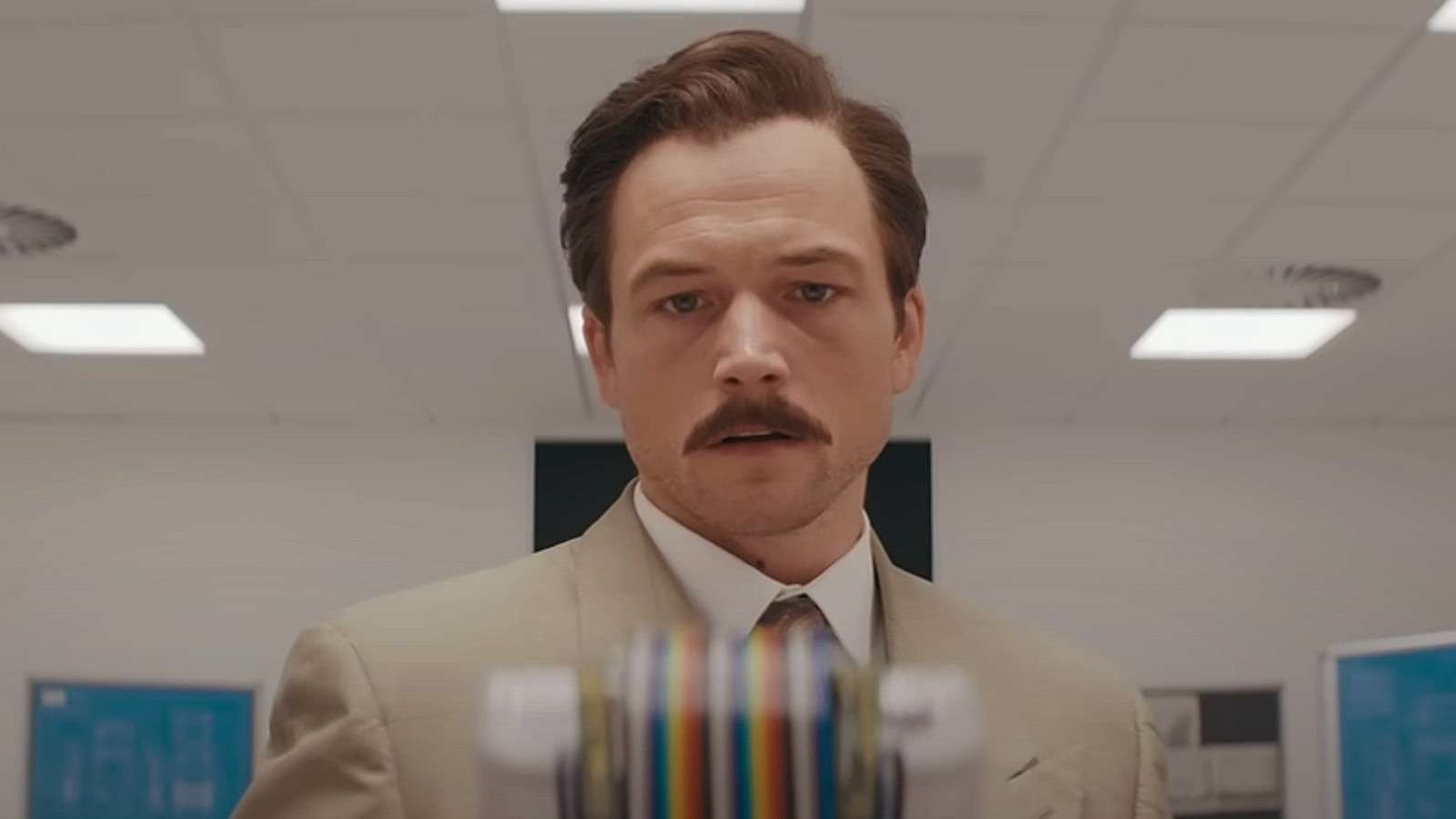Tetris review: From Russia with Fun
 Apple TV+
Apple TV+Tetris is a fizzy, f*ck-the-rules thriller, chronicling the unbelievable story of the brass neck who dared to throw open the Iron Curtain in aid of the “perfect game.”
There’s a lovely, amusing moment in a brief rundown of Tetris’ humble, communist beginnings: nobody was interested (nor permitted) to make any profit, so the game circulated around the USSR free of charge on floppy disks, bringing the Soviet Union’s workflow to a near-standstill until it was banned.
Its effects on the brain are universal: its peppy, foot-tapping theme and ease of gameplay made it an instant phenomenon in the eyes of players far and wide. It’s infectious, painful to put down, and a bit like Wii Sports, it was a true equalizer: communal euphoria and accessible for all.
Soon after its conception, such treasure quickly became a border-crossing commodity to the capitalist “swindlers” and game-makers abroad and became one of the closing beats of the Cold War. The tagline is entirely fair: it’s a story you couldn’t make up.
Tetris, Nintendo… and the Soviet Union
“It was the most beautiful thing I’d ever seen,” Henk Rogers (Taron Egerton), the moustached founder of Bullet-Proof Software, tells a banker. While flogging his primitive, boring port of Go, he finds his sales staff distracted by another game… you can guess what it is. After playing for five minutes, he was fogged by dreams of multi-colored falling bricks.
He secures the rights for Japanese arcade machines and home video game consoles, but a once-in-a-lifetime opportunity forces him to bet the house: Nintendo is preparing to launch the Gameboy, and if Henk can secure handheld rights, he’ll enter into a rare, lucrative partnership with the biggest gaming company on the planet.
There’s just one problem: the rights are tied up between three parties: Robert Stein (Toby Jones) of Andromeda Software; Robert Maxwell (Roger Allum) of Mirrorsoft; and the Soviet Union, and the KGB don’t take too kindly to foreigners meddling with Russian property.
The film comes from director Jon S. Baird and writer Noah Pink. Last year, Egerton likened the movie’s tone to The Social Network, but it’s an unfair, unreachable comparison: one dealt with its morally murky, titanic IP with razor-sharp, prestige finesse; the other is lighter on its feet, with eye-catching, nostalgic 8-bit transitions and zesty Japanese and Russian covers of ’80s bangers, plus a standout use of Europe’s The Final Countdown.
The visual flourishes may feel grating to some, especially when they don’t add much to some shots (to the shock of no one, monolithic, monochrome Soviet buildings look just as boring in arcade vision). Intentional or not, the movie leans into the aesthetic of Netflix’s High Score and channels the same warmth as a result. Baird has fun with it, too, infusing quirky bursts of pixels into car crashes.
Egerton delivers his best performance in Tetris
That overall weightlessness is a slight detriment, especially as the plot heats up firmly into Argo territory; only here, the hostage isn’t any one person, it’s Tetris itself. But then you consider all the cartoonish strokes: Alum’s Maxwell, towering in a waxy, hilarious fat suit, smokes fat cigars and barks, “F*cking commie b*stards”; his son Kevin (Anthony Boyle) is wee-man-syndrome personified, the kind of guy who drinks whisky willing it to taste like apple juice with every sip; and the KGB are given the classic all-seeing-all-punching, teeth-gnashing treatment with black coats and slicked-back hair.
 Apple TV+
Apple TV+Its ideas aren’t half-baked, they’re just surface-level, never attempting to delve too deep into the emotional makeup of the Soviets nor the politics in play, despite the life-or-death stakes. When Henk goes to a secret party in Moscow, people raise their glasses to freedom of speech, and how “good ideas have no borders.” One line about the Soviet Union being “more than missiles and military might” strays dangerously close to Rocky yelling, “If I can change, everybody can change”, but it’s met with appropriate laughter rather than any sort of reverence.
Unsurprisingly, given their involvement, there’s one friendship sketched with more nuance: Henk and Alexey Pajitnov (Nikita Yefremov), the game’s humble creator. This was a bond built on impossible odds: a businessman from America and a government coder under the USSR’s dying regime, and watching Henk slowly, likably wearing him down is a joy.
While Rocketman was a glitzy, showy showcase, Egerton delivers his best performance here with a turn drawing from Tom Cruise’s manic, charmingly desperate, bankable leading-man charisma in Jerry Maguire. Henk himself falls victim to some rote plotting (the dad who misses the recital, yawn), but Egerton may be equipped with the firepower for the same trajectory as the aforementioned movie star: a handsome everyman who doesn’t miss, whether he’s an action hero or video game salesman. Let’s hope he continues to make eyebrow-raising choices.
Tetris review score: 4/5
Tetris is a propulsive, highly watchable piece of mass entertainment; it won’t change the world as much as its space-shifting bricks, but you’ll have a good time glued to your screen.
Tetris hits Apple TV+ on March 31, 2023.